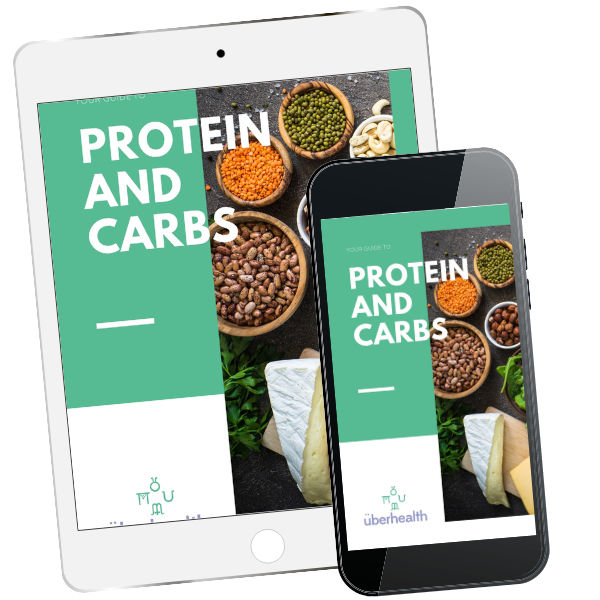Should Teenagers Supplement?

The teenage years mark a crucial period of growth and development, both physical and mental. During this time, teenagers undergo rapid body changes, placing unique demands on their nutritional needs.
As a sports nutritionist/naturopath, I often encounter questions regarding the role of supplements in teenage diets.
Should teenagers supplement? Is it necessary, or even safe, for them to do so?
In this article, we'll explore these questions and the potential benefits and risks of teenage supplementation.
The Nutritional Needs of Teenagers:
Firstly, let’s discuss the nutritional needs of teenagers. With teenagers, it can be challenging to define their energy needs due to several different factors:
- Metabolic variability
- Methodological difficulties in estimating energy intake and expenditure
- Ethics regarding research in youth
- Adequate energy is required to meet the growth and development needs of the individual as well as the additional demands associated with sports activity.
- Encouraged to moderate eating patterns to reflect daily exercise demands
- This often means regular meals and larger snacks depending on the training demands.
Recognising that teenagers have unique energy needs and metabolic characteristics that differ from adults is essential.
Higher Energy Expenditure per kg Body Weight:
Teenagers typically expend more energy relative to their body weight compared to adults. This is due to their rapid growth and development, as well as their increased physical activity levels.
Greater Reliance on Fats for Fuel:
Compared to adults, teens tend to rely more heavily on fats for energy metabolism. This preference for fat as a fuel source is influenced by developmental stage and metabolic efficiency factors.
Smaller Glycogen Stores:
Glycogen, the body's carbohydrate storage form, tends to be smaller in teenagers than in adults. This means that they may need to replenish glycogen stores more frequently, especially during periods of intense physical activity.
Lower Lactate Levels:
Children and Teens generally have decreased lactate levels in comparison to adults.
Differences in Thermoregulation:
Children, potentially into their early teenage years, have different thermoregulatory mechanisms than adults, which affect their ability to regulate body temperature during exercise and in extreme environmental conditions.
Understanding these metabolic differences is essential for tailoring nutrition and hydration strategies to meet the specific needs of teenagers, whether your own or the teenagers you treat in your naturopath/nutrition clinic.
Should teenagers supplement? Is it necessary, or even safe, for them to do so?
The question of whether teenagers should use supplements is complex and one I often get asked. When looking into this, both low energy availability and the safety of supplementation need to be considered.
Firstly, assessing whether teenagers are meeting their nutritional needs through diet alone is essential. Adolescence is a period of rapid growth and development, requiring increased intake of vital nutrients. However, as you know, dietary habits among teenagers can vary widely. Many fall short of recommended intakes for key nutrients due to factors like busy schedules, limited food choices, or disordered eating patterns. Plus, often, peer pressure from friends regarding eating fast foods, etc., too.
What is Low energy availability?
Low energy availability arises when dietary energy intake is inadequate, or energy expenditure from exercise exceeds intake, resulting in insufficient energy reserves to sustain normal physiological functions.
Low energy availability in teens (LEA) may have several health consequences:
- delayed puberty
- menstrual irregularities
- poor bone health/ increased risk of stress fractures
- short stature
- the development of disordered eating behaviours
- increased risk of injury
- Lowered libido, issues with fertility
- Trouble with sleep
- Poor appetite
- Depressed mood, irritability
- Impaired immune function, increased incidence of infection
- Impaired athletic performance
(Bass & Inge, 2010; Nattiv et al., 2007)
Where teenagers have low energy availability, or consistently fail to consume a balanced diet rich in nutrient-dense foods, supplementation may be warranted to fill nutritional gaps and ensure optimal growth and development. However, it's important to note that supplements should complement, not replace, a healthy diet based on whole foods.
Specific Needs and Goals:
As with adults, teenagers involved in sports or intense physical activities may have higher energy and nutrient requirements than their sedentary counterparts. Supplements like protein powders, sports drinks, or electrolyte replacements may help support athletic performance, muscle recovery, and hydration. Similarly, teenagers with certain health conditions or dietary restrictions may benefit from targeted supplementation to address specific deficiencies or meet specialised nutritional needs.
However, it's essential to tailor supplementation to individual circumstances and goals, considering factors such as age, sex, activity level, health status, and dietary habits. Consulting with a professional, such as a naturopath, nutritionist or sports nutritionist, can provide personalised guidance on whether supplementation is appropriate and safe for a particular teenager.
Safety Concerns:
While supplements can offer benefits when used appropriately, there are also potential risks and safety concerns to consider. One major concern is the significant variability in:
- Quality
- Dosage
- Ingredients
These variations can arise from factors such as where the supplements are purchased—from supermarkets, chemists, health food stores, online sources, or through practitioner prescription.
Furthermore, excessive or inappropriate use of certain supplements may result in adverse effects, nutrient imbalances, or interactions with medications.
Teenagers and their parents must approach supplementation with caution, carefully researching products, and seeking guidance from a professional like a naturopath, nutritionist or sports nutritionist.
The most essential nutrients for Teenagers:
Key nutrients required for teenagers include protein, calcium, vitamin D, iron, iodine, zinc, magnesium and omega-3 fatty acids.
- Protein is crucial for muscle growth and repair.
- Calcium supports bone health.
- Iron is essential for oxygen transport in the blood.
- Iodine is essential for hormone production
- Zinc plays a role in immune function and wound healing.
- Magnesium is important for muscle function, nervous system regulation and overall health.
- Vitamin D is vital for bone health, immunity, skin health, and hormone regulation.
- Omega-3 fatty acids support brain function and cardiovascular health and reduce inflammation.
Teenage Supplementation:
While a balanced diet should ideally provide all the necessary nutrients, there are instances where supplementation may be beneficial for teenagers:
- Addressing Nutrient Deficiencies
- Supporting Athletic Performance
- Meeting Increased Energy Demands:
- Supporting Health Goals
Healthy Alternatives to Supplements
While supplements can be helpful in certain situations, they should not replace a healthy diet based on whole, nutrient-rich foods.
Here are some alternatives to consider:
Emphasis on Whole Foods:
Teenagers can be encouraged to focus on consuming a variety of whole foods, including fruits, vegetables, lean proteins, whole grains, and healthy fats. These foods provide essential nutrients in their natural form and offer numerous health benefits beyond supplements.
Natural Sources of Nutrients:
Many nutrients found in supplements can also be obtained from natural food sources. For example, calcium can be found in leafy greens, while omega-3 fatty acids are abundant in fatty fish like salmon, nuts, and seeds.
Promote Healthy Lifestyle Habits:
In addition to dietary choices, lifestyle factors such as regular exercise, adequate sleep, hydration, and stress management play a crucial role in overall health and well-being. Encourage teenagers to prioritize these habits as part of a holistic approach to health.
In conclusion, whether teenagers should supplement depends on various factors, including their dietary habits, nutritional needs, health status, and goals. While supplements can be a valuable tool for addressing specific deficiencies or supporting certain health outcomes, they should be viewed as part of a comprehensive approach to nutrition that prioritizes whole foods, balanced eating, and informed decision-making. Teenagers and their parents should seek guidance from healthcare professionals to ensure safe and appropriate use of supplements while also focusing on cultivating healthy lifestyle habits that promote long-term health and well-being.
FREE RESOURCE


